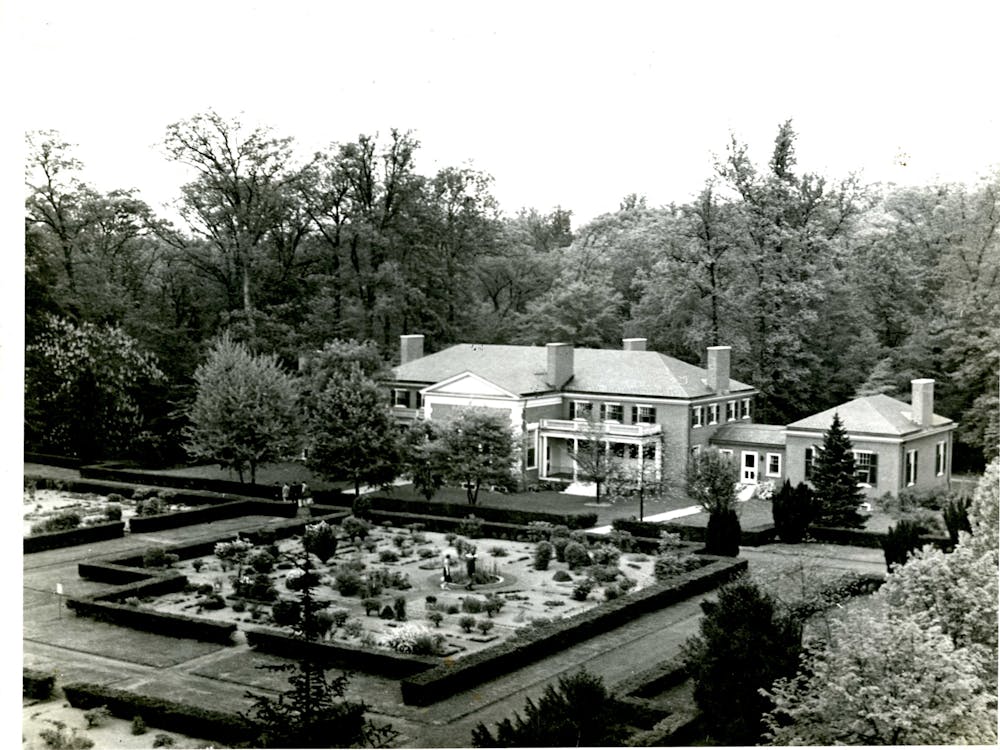In order to encourage discussions about harmful gender stereotypes surrounding masculinity, the Office of Women & Gender Resources established the Men and Masculinities Board last semester. The Board will have its first meeting on Thursday, Sept. 28.
The Board is open to students of all genders and will oversee the Masculinity Project, a programming series that aims to disassemble the norms surrounding masculinity. It urges men and women to consider what it means to conform to masculinity and discuss what it is like when masculinity is only confined to societal constructs.
The Masculinity Project began as a collaboration between Women & Gender Resources and LGBTQ Life. It has hosted numerous events centered around masculinity in relation to femininity, culture and mental health.
Jeannine Heynes, the director of Women & Gender Resources, believes that actively exploring masculinity will allow people to become more authentic, welcoming and tolerant.
“In my work with masculinity, it tends to be aggressive, it tends to be the lone wolf, it tends to be distant from femininity, it tends to be unemotional,” Heynes said. “Many men and women that take on or perform attributes of masculinity, they’re like, ‘that’s not who I am.’ The way that we do gender is on more of a fluid spectrum.”
Heynes also thinks that toxic masculinity, or norms of male behavior, prevents men from becoming their authentic selves, as they are continuously pressured by society to present themselves in a certain way.
“We need to address the kind of violence, isolation, misogyny that comes up in toxic masculinity,” Heynes said. “[It] privileges white, heterosexual, cis-gendered, able-bodied men.”
In addition, Heynes argued that it is imperative for such stereotypes to be broken down. She feels that the feminist movement provides a good framework for these conversations, as feminism encourages women to reject limited views of what it means to be a woman.
“The feminist movement is saying [that] the norm isn’t always the most healthy,” she said. “In fact it’s been constructed very often to keep women in their place or subordinate or silent.”
Senior Alizay Jalisi, the president of Hopkins Feminists, believes that toxic masculinity creates obstacles to people of all genders. She feels that it pushes people who do not identify as cis-gender heterosexual men in a place of inferiority and that heterosexual men should play their part in dismantling traditional masculinity.
“I think it would be really beneficial in the fight for gender equity if these men taught themselves and those around them to question and hopefully undo the things that they have been taught with regards to their gender,” Jalisi wrote in an email to The News-Letter. “To me, feminism is an exercise in exactly that — informing about, questioning and ultimately overturning such traditional gender norms.”
Senior Samuel Allen is a member of Out in STEM, a society dedicated to increasing the participation of LGBTQ individuals in the fields of science, technology, engineering and mathematics. Allen hopes that the field will be even more receptive to the LGBTQ community in the future.
“Being able to be open allows me to be true to myself and to serve as a waypoint for others in the field who may be on their own journey of coming out,” Allen wrote in an email to The News-Letter. “Many of the older LGBTQ scientists in my field have told me about the roadblocks that followed them throughout their careers because they were out.”
Allen believes it is important for STEM fields to embrace individuals from diverse backgrounds.
“Having to suppress parts of your identity can make the field feel closed off,” Allen wrote. “Masculinity is not dependent on your sexuality or gender. Don’t be afraid to challenge these expectations.”
For people who are struggling with their identity, Heynes believes it is important to be a part of a validating community.
“I think it’s important to find community with people who can affirm that you are of value, who respect and appreciate your authenticity,” Heynes said. “I think once young men see that other men are having these conversations, they’ll think, ‘I’m not alone in this.’”
Editor’s note: One News Editor is a member of the Men and Masculinities board. They were not involved in the writing or editing of this piece.






















Please note All comments are eligible for publication in The News-Letter.